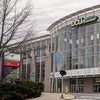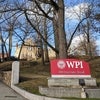The Tech Tax Debacle: Have We Learned Anything Yet?
 Matthew Beaton
Matthew Beaton
The governor and a majority of the Legislature recently professed a major mea culpa during their reversal of the recently enacted application of the 6.25- percent sales tax on technology-related services. As we shake off the cobwebs of the tech tax hangover, it's time for legislative leaders to reevaluate their economic policies and consider the effects they have on small business, especially those in technology-related industries.
The rapidly evolving high tech industry has recently seen a major shift in employment in Massachusetts. Today's information age is creating a new generation of motivated innovators and entrepreneurs, and our public policy must reflect this and adapt to it. In doing so, we must consider what the future holds for technology companies in Massachusetts.
A snapshot of the future can be seen on Prescott Street at WPI's Gateway Park: the commonwealth's shining example of innovative partnerships between private, public and educational institutions. The value of this cooperative and collaborative approach to redevelopment should be recognized and replicated wherever possible to leverage the strength of our higher educational institutions, in tandem with private-sector investment.
Further down Prescott Street, the next frontier in innovation is unfolding at organizations like WPI's Tech Advisers Network, Running Start and Worcester's Technocopia. All three organizations have a shared mission of supporting and promoting the region's entrepreneurial and innovative spirit. For example, Running Start is a co-working space and incubator with a mission to provide entrepreneurs with a supportive environment where they can seek guidance, grow ideas, collaborate and network. These incubators and co-working spaces support entrepreneurs and innovators by providing resources to bring innovative ideas to market-scale production. Government and larger corporations should align themselves with and support these entities to retain and ultimately benefit from the intellectual capital that our colleges and universities create.
The commonwealth's highly educated workforce and high quality of life create a solid foundation on which we can build. However, there are many factors that negatively impact our overall business climate. These include high costs for energy, unemployment insurance and health care, along with a cumbersome regulatory environment and a very unpredictable tax climate. By lowering the cost of doing business and creating a more predictable tax code, we can build on this foundation and increase the commonwealth's presence as a hub of innovation and entrepreneurship.
If the recent tech tax debacle has taught us anything, it is that we can no longer look at businesses as a quick source of revenue during challenging times, but rather as partners in creating a healthy and vibrant business environment. Tax policies like the tech tax only increase the volatility and unpredictability of the business climate, and are nothing but short-term budget solutions with long-term negative economic consequences. We need to nourish the fruits of our higher educational institutions by supporting entrepreneurship and recognizing the value of such things as the research and development tax credit. These long-term cooperative strategies will ultimately lead to a vibrant economy with more job creation and a more permanent source of revenue for the commonwealth.
When we ask what the future of innovation looks like, we need to do nothing more than look in our own backyard. I hope that our elected officials and the business community acknowledge the energy and potential behind the evolving technology landscape, embrace it, and assist in its growth by removing roadblocks to entrepreneurial innovation and small business startups. If we don't, technology's future in Massachusetts as seen on Prescott Street will be a missed opportunity, leaving behind nothing more than memories of what could have been.
Matthew Beaton represents the 11th Worcester District in the Massachusetts House, which covers Shrewsbury and Precincts 1 and 4 in Westborough.
Read more
GOP Lawmakers Tout Tech Tax Repeal Bill
In Major Shift, Patrick Backs Tech Tax Repeal
If Tech Levy Goes, Budget Fix Might Not Include New Taxes
House Votes To Repeal Tech Tax After Heated Debate
WPI Launches Data Science Grad Program









0 Comments